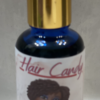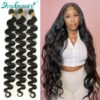The Best Shampoos For Every Hair Type
5 best shampoos for every hair type
Just Nutritive Normal Hair Shampoo | Best Shampoo for Normal Hair Types | Leaves Hair Fresh & Great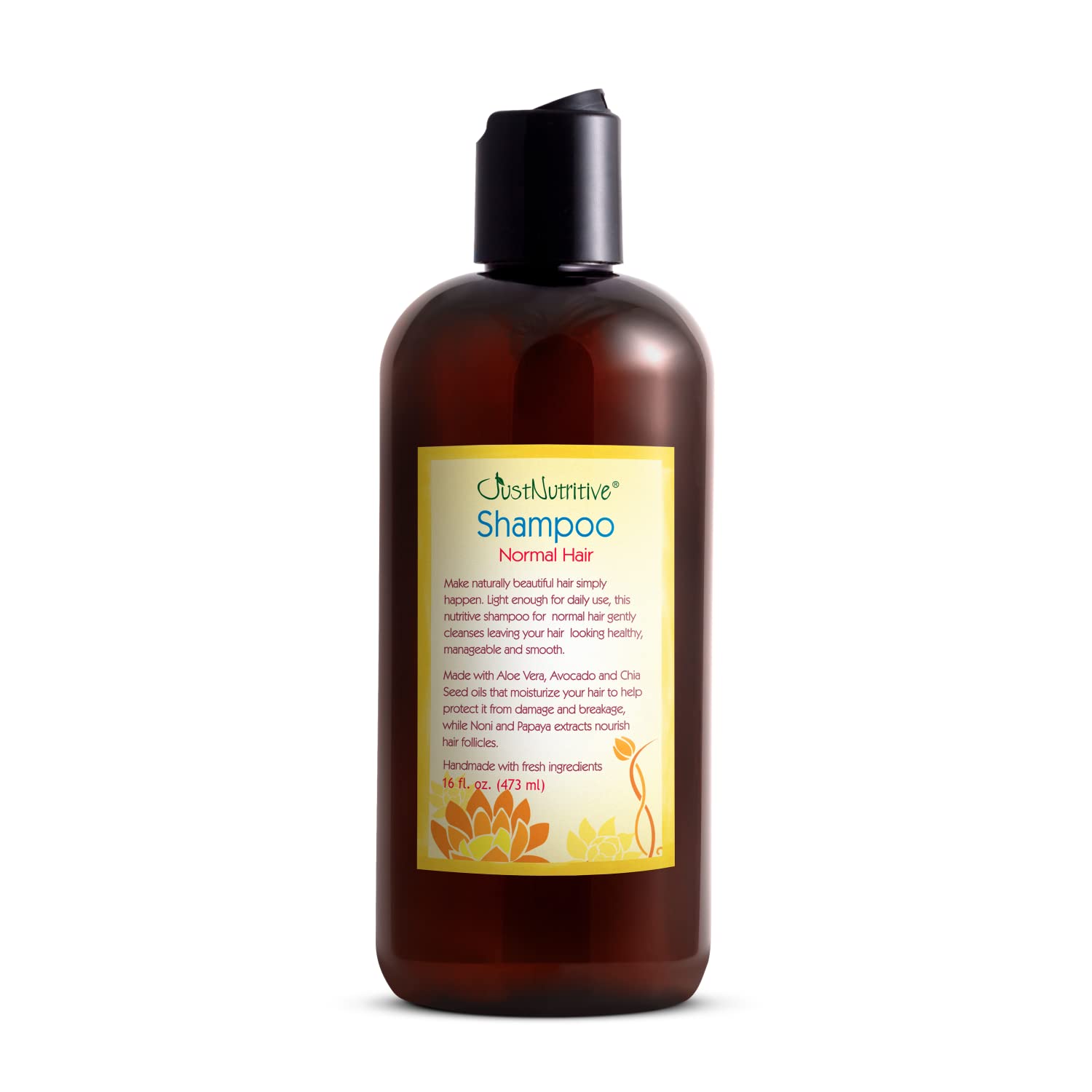
Best Shampoo for Normal Hair Overall
Just Nutritive Normal Hair Shampoo
Just Nutritive Normal Hair Shampoo stands out as an exceptional choice for individuals with normal hair types looking for a balanced clean. This shampoo effectively removes dirt and excess oils without stripping the hair of its natural moisture, leaving strands feeling refreshed and revitalized. Users have reported softer, shinier hair with a noticeable bounce, thanks to the gentle, yet effective formulation.
Moreover, the pleasant scent adds a touch of luxury to the shower experience, making it a delightful addition to any hair care routine. Overall, Just Nutritive delivers on its promise to maintain hair health while keeping it clean and manageable, making it a top contender for anyone seeking the best shampoo for normal hair.
Pros
Works well for normal hair types
Contains gentle, non-stripping cleansers
Cleanses well
Natural ingredients
Free of harmful chemicals
Cons
Gentle cleansers mean hair might feel greasy
Scent maybe too strong
Type: Shampoo For hair: All, Curly, Fine, Thick, Thin Age: Adult Features: Repair Strands, Soften, Moisturizing Hair condition: Normal Scent: Coconut, Fresh
View on AmazonNizoral Anti-Dandruff Shampoo with 1% Ketoconazole, Fresh Scent, 7 Fl Oz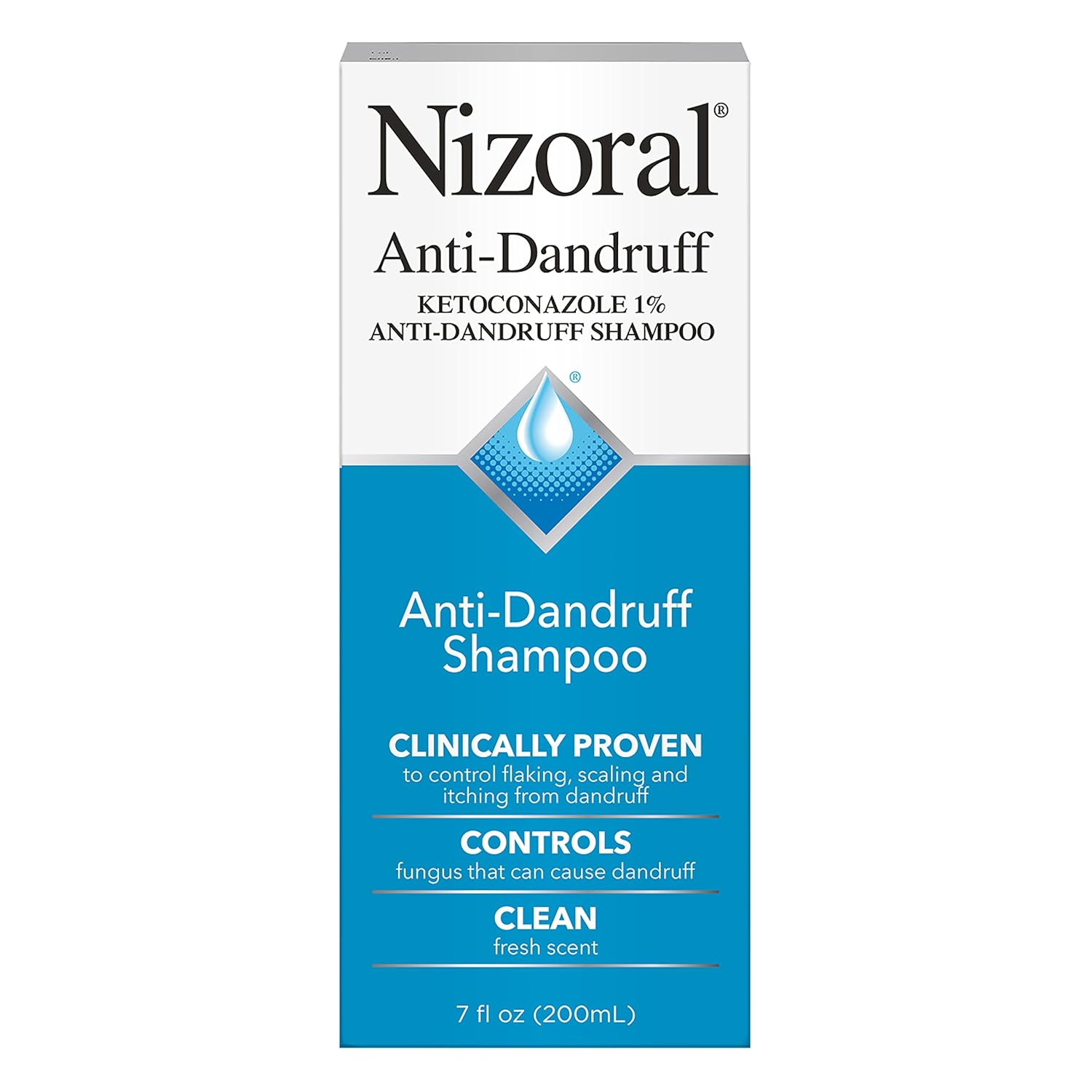
The best dandruff shampoo
Nizoral Anti-Dandruff Shampoo
Nizoral Anti-Dandruff Shampoo with 1% Ketoconazole is a standout product for anyone struggling with dandruff. With its fresh scent and effective formula, it not only tackles flakiness but also soothes the scalp, making washing hair a pleasant experience. The 7 fl oz bottle is conveniently sized for both home use and travel, ensuring users can maintain their anti-dandruff regimen on the go.
Customers have noted significant improvements in their scalp health after just a few uses, praising the shampoo for its ability to reduce itching and flaking without drying out the hair. This product offers a reliable solution for those seeking relief from dandruff while leaving their hair feeling clean and revitalized. Overall, Nizoral’s effective formulation and refreshing scent make it a top choice in the anti-dandruff shampoo category.
Pros
Works for all hair types and textures
Ketoconazole is the most effective ingredient available for fighting dandruff
It works
Effective for all levels of dandruff
Strongest concentration of ketoconazole available without a prescription
Cons
Can be drying to the hair/may need to use conditioner
May cause hair to feel dry
Size: 7 Fl Oz Powerful: Yes (10X more effective) Type: Liquid Active ingredient: Ketoconazole 1% Hair Range: All Fighting ingredient: Dandruff
View on AmazonNeutrogena T/Sal Therapeutic Shampoo for Scalp Build-Up Control with Salicylic Acid, Scalp Treatment for Dandruff, Scalp Psoriasis & Seborrheic Dermatitis Relief, 4.5 fl. oz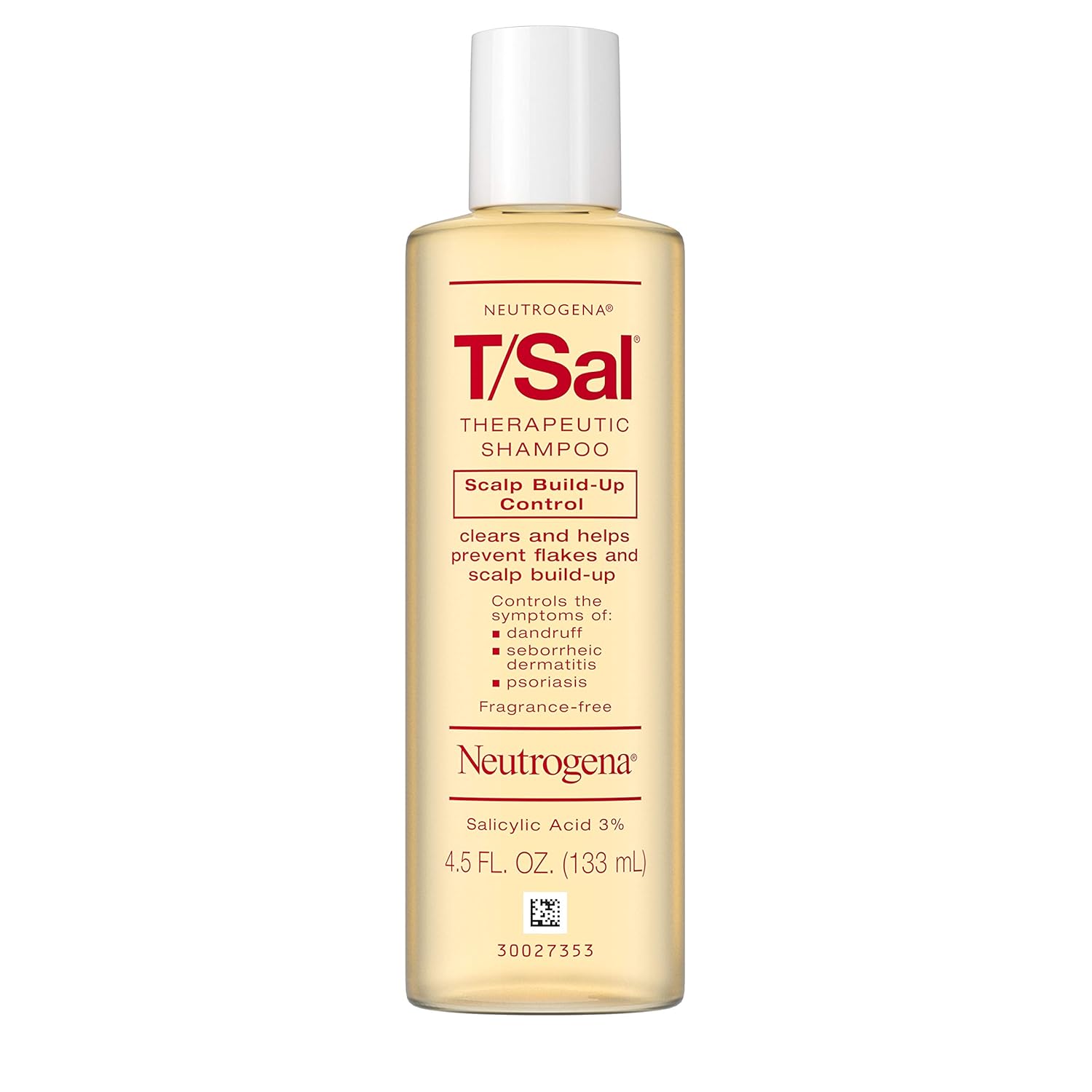
Best shampoo for psoriasis
Neutrogena T/Sal Shampoo
Neutrogena T/Sal Therapeutic Shampoo is a game-changer for anyone struggling with stubborn scalp issues like dandruff, psoriasis, and seborrheic dermatitis. Formulated with salicylic acid, this shampoo effectively targets and dissolves scalp build-up, providing relief from itchiness and irritation. Users have reported noticeable improvements in their scalp conditions after just a few washes, making it a reliable choice for those seeking a therapeutic solution.
In addition to its powerful active ingredient, the shampoo’s gentle formulation leaves hair feeling clean and refreshed without stripping moisture. Many reviewers appreciate how easy it is to incorporate into their hair care routine, noting that it lathers well and has a pleasant scent. Overall, Neutrogena’s T/Sal Therapeutic Shampoo stands out as a highly effective treatment option for anyone looking to regain a healthy, flake-free scalp.
Pros
Removes oil and flakes
Effective ingredients
Most effective when other dandruff shampoos have failed
Controls itching
Effective for scalp psoriasis and seborrheic dermatitis
Cons
May cause scalp and hair to feel dry
May cause hair to feel dry
Size: 4.5 fl. oz Main ingredient: 3% salicylic acid Usage: Wet hair. Massage liberal amount of T/Sal shampoo and let it be in hair for several minutes Recommended by dermatologist: Yes Effect: Maximum relief for dry, itchy, flaky scalps Formula: Conditioning
View on AmazonHead & Shoulders Clinical Dandruff Shampoo Twin Pack, Advanced Oil & Flake Control, Selenium Sulfide for Seborrheic Dermatitis Relief, Prescription Strength Scalp Care, Refreshing Citrus, 13.5 Oz Each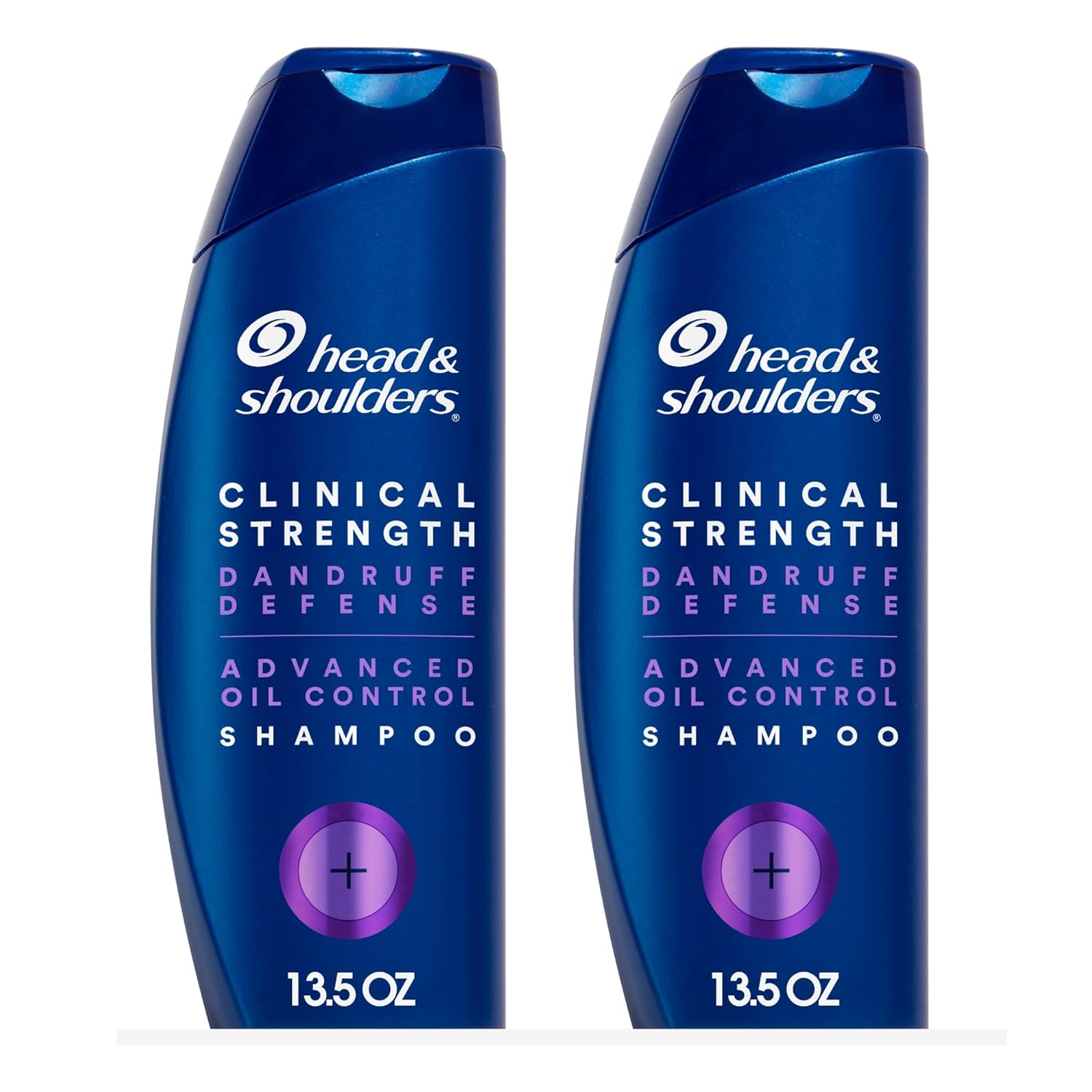
Best dandruff shampoo overall
Head & Shoulders Clinical Shampoo Twin Pack
The Head & Shoulders Clinical Dandruff Shampoo Twin Pack is a formidable solution for individuals struggling with seborrheic dermatitis and persistent dandruff. With its advanced oil and flake control formula, enhanced by the power of selenium sulfide, this prescription-strength shampoo offers effective relief while leaving the scalp feeling refreshed. The refreshing citrus scent adds a pleasant twist, making the cleansing experience enjoyable rather than a chore. Each bottle contains 13.5 oz of product, ensuring ample supply for consistent use.
Users have reported noticeable improvements in their scalp health after just a few washes, with flakiness significantly reduced and oiliness controlled. The dual-pack offering is a great value, allowing consumers to stock up without worry. While some may initially find the formula a bit harsher than traditional shampoos, the results speak for themselves—smooth, flake-free hair that radiates confidence. For those seeking a reliable remedy for dandruff and scalp irritation, this product from Head & Shoulders comes highly recommended.
Pros
Works well for people with oily hair
Effective against dandruff, seborrheic dermatitis, and other scalp conditions
Prescription-strength formulation
Recommended by dermatologists for seborrheic dermatitis and scalp psoriasis
Prescription-strength formula
Cons
Strong, medicinal scent
Chemical smell
Brand: Head & Shoulders Visible flakes protection: Up to 100% Weight: 13.5 Oz Each Scent: Refreshing Citrus Strength: Prescription Hair Type: All
View on AmazonTea Tree Special Shampoo, Deep Cleans, Refreshes Scalp, For All Hair Types, Especially Oily Hair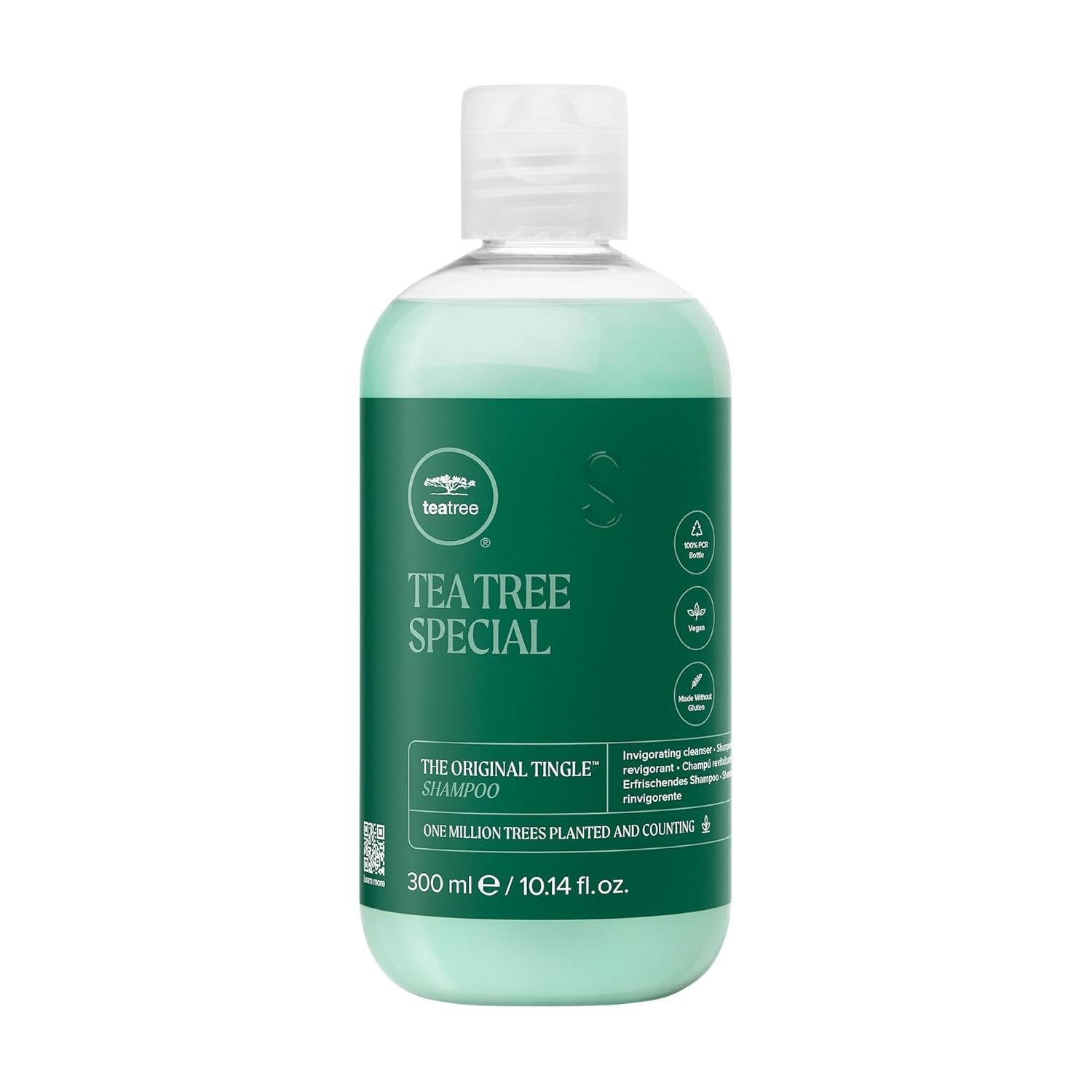
Best Shampoo for Oily Scalp
Tea Tree Special Shampoo
The Tea Tree Special Shampoo stands out as a refreshing and effective choice for anyone looking to revitalize their hair care routine. Known for its deep-cleansing properties, this shampoo is particularly beneficial for those with oily hair, as it works diligently to remove excess oil and buildup from the scalp. The invigorating formula, infused with tea tree oil, not only purifies but also leaves the scalp feeling refreshed and rejuvenated.
Users have reported a noticeable difference in the overall health and appearance of their hair after incorporating this shampoo into their regimen. Suitable for all hair types, it effectively balances the scalp without stripping away necessary moisture, making it a versatile option for many. The aromatic experience adds an extra layer of enjoyment, making every wash feel like a mini spa treatment. Overall, Tea Tree Special Shampoo is a fantastic choice for anyone seeking a thorough cleanse and a boost of refreshment for their hair and scalp.
Pros
Tea tree and peppermint scent may help energize and/or eliminate head lice
Invigorating scent
Made with tea tree oil, peppermint, and lavender
Cons
Strong, medicinal smell
Strong smell
Brand: Tea Tree Scent: Reviving Item Form: Liquid Age Range (Description): All Hair Type: All
What should I look for in a shampoo?
Choosing the right shampoo can feel overwhelming, especially with the numerous options available on the market today. The best shampoos for every hair type prioritize specific needs, so understanding your hair’s unique characteristics is essential. Factors such as texture, thickness, and scalp condition all play a crucial role in determining which product will work best for you. For instance, if you have fine hair, a lightweight shampoo that offers volume without weighing your strands down may be ideal. Conversely, those with thick or curly hair often benefit from moisturizing shampoos that enhance hydration and manageability.
Another critical element to consider is the ingredients. Look for shampoos that contain natural, nourishing components like argan oil, shea butter, or coconut oil if you aim to restore moisture and luster. On the other hand, if you’re dealing with oily hair, you may want to avoid heavy oils and opt instead for clarifying formulas that help remove excess sebum and product buildup. Additionally, pay attention to sulfate content; while sulfates are effective cleansers, they can strip natural oils and lead to dryness, particularly for those with color-treated or damaged hair.
It’s also important to consider any specific concerns you might have, such as dandruff, sensitivity, or color preservation. For those with scalp issues, a soothing shampoo with ingredients like tea tree oil or salicylic acid may help alleviate symptoms. If you frequently color your hair, look for shampoos formulated specifically to protect vibrancy and extend the lifespan of your dye job. The best shampoos for every hair type will not only cater to the texture and condition of your hair but will also address any ongoing issues.
Ultimately, finding the right shampoo is a personal journey that may require some experimentation. Don’t hesitate to try various formulations and pay attention to how your hair responds. With the right knowledge about your hair’s needs and the appropriate products, you can discover a shampoo that not only cleanses but also enhances your natural beauty, keeping your locks healthy and vibrant.
How often should you wash your hair?
Determining how often to wash your hair can be a personal decision influenced by various factors including hair type, lifestyle, and scalp condition. Generally, there isn’t a one-size-fits-all answer, as everyone’s hair has its own unique needs. For those with oily hair, daily washing might be necessary to remove excess sebum and keep hair looking fresh. On the other hand, individuals with dry or curly hair may benefit from washing their hair less frequently—perhaps just once or twice a week—to maintain natural oils and prevent further dryness.
Using the right products is crucial when deciding on a hair washing routine. The best shampoos for every hair type are specifically formulated to address the unique needs of different textures and conditions. For instance, volumizing shampoos might be suitable for fine hair, while moisturizing shampoos are ideal for dry or frizzy hair. Understanding your hair’s needs can help you choose a shampoo that not only cleans effectively but also enhances its overall health.
In addition to considering hair type, it’s important to take your lifestyle into account. People who engage in regular physical activity or have exposure to environmental pollutants might find themselves needing to wash their hair more frequently to prevent product buildup and maintain scalp health. Conversely, those who work in less demanding environments or have less exposure to dirt may find that their hair stays cleaner for longer periods.
Ultimately, the key to a healthy hair washing routine lies in balance. While it’s essential to keep your hair clean, over-washing can lead to dryness and irritation. Pay attention to how your hair and scalp feel, and adjust your washing frequency accordingly. Whether you wash your hair daily, a few times a week, or somewhere in between, finding the best shampoos for every hair type will support your ideal routine and help keep your hair looking and feeling its best.
What’s the deal with sulfates?
Sulfates are a common ingredient found in many personal care products, particularly shampoos and body washes. These compounds act as surfactants, helping to create lather and remove dirt and oil from the hair and skin. However, the growing conversation around sulfates has raised some eyebrows among consumers who are becoming increasingly conscious of what they put on their bodies. While sulfates can effectively cleanse, they can also strip natural oils, leaving hair dry and prone to damage, which is why many are on the hunt for the best shampoos for every hair type that are sulfate-free.
The debate surrounding sulfates often centers on their potential to irritate sensitive skin and cause dryness or frizz in certain hair types. For those with curly, coily, or color-treated hair, sulfate shampoos can be particularly harsh, leading to a loss of moisture and vibrancy. As a result, many brands have begun to offer formulations that forgo sulfates altogether, opting for gentler cleansing agents. This shift has proven beneficial for those looking to maintain healthy hair while avoiding the potential pitfalls associated with traditional sulfate-based products.
Finding the right shampoo can be a personal journey, as different hair types respond uniquely to various ingredients. Those with oily hair might prefer formulations that include sulfates for their deep-cleansing capabilities, while those with dry or damaged hair usually benefit from sulfate-free options that help retain moisture. The best shampoos for every hair type can often be found in blends of natural ingredients that cater to specific needs, offering effective cleansing without the risk of over-drying.
Ultimately, the choice between sulfate and sulfate-free shampoos boils down to individual preferences and hair care goals. Understanding your hair type and needs can guide you in selecting the most suitable products. Whether you gravitate towards the rich lather of sulfate shampoos or the gentler touch of sulfate-free alternatives, there’s an array of options on the market that cater to diverse hair care requirements. As the beauty industry evolves, it’s encouraging to see more products being developed to accommodate various preferences, promoting a healthier approach to hair care.
What about parabens?
Parabens have become a common topic of discussion in the world of beauty and personal care products. These synthetic compounds are widely used as preservatives in cosmetics and shampoos to prevent the growth of harmful bacteria and mold, extending the shelf life of products. However, concerns have emerged over their potential health risks, as some studies have suggested a possible link between parabens and hormonal disruptions. This has led many consumers to seek out paraben-free options, eager to choose products they believe are safer for their health, particularly for their hair care routines.
When looking for the best shampoos for every hair type, many brands now highlight their paraben-free formulas as a key selling point. From dry and damaged hair to oily and fine textures, there’s a growing array of options designed to cater to specific needs without the inclusion of these controversial preservatives. Shampoos fortified with nourishing ingredients like natural oils or botanical extracts are increasingly popular, offering effective cleansing while promoting overall hair health without the potential drawbacks of parabens.
As consumers become more educated about the ingredients in their products, it’s essential to read labels and understand what each component does. Parabens might have been the go-to preservative in the past, but the beauty industry is evolving. Many manufacturers are now focusing on developing effective preservative systems that maintain product integrity without relying on parabens or other controversial ingredients. A careful selection of shampoos can help individuals find the best options tailored to their hair type, ensuring they can enjoy vibrant locks without sacrificing their health ideals.
Ultimately, the choice to use or avoid parabens is a personal one. While many people opt for paraben-free products in pursuit of cleaner, safer beauty routines, others might prioritize efficacy and performance over ingredient concerns. Regardless of your stance, finding the best shampoos for every hair type means balancing personal preferences with the effectiveness of the product for your unique hair needs. In a world filled with choices, staying informed and mindful of ingredient lists is key to making the right decisions for both your hair and overall well-being.
What are some common ingredients that can be irritating to my scalp or hair?
When it comes to maintaining healthy hair and a comfortable scalp, it’s essential to be aware of the common ingredients found in hair care products that can cause irritation. Many commercial shampoos and conditioners are packed with various additives that may not be suitable for everyone. Sulfates, for instance, are known for their cleansing properties, but they can strip hair of its natural oils, leading to dryness and irritation. Individuals with sensitive skin often find that shampoos containing sodium lauryl sulfate or ammonium lauryl sulfate can exacerbate scalp issues, making it vital to seek out alternatives that cleanse without harshness.
Another ingredient to be cautious of is alcohol, particularly in its denatured form. Many styling products contain alcohol to help with drying time, but this can contribute to frizz and dryness in both hair and scalp. Ethanol and isopropyl alcohol can strip the moisture from your hair and skin, further aggravating pre-existing conditions like dandruff or dermatitis. Opting for alcohol-free products can make a significant difference, showcasing the importance of reading labels when selecting the best shampoos for every hair type.
Fragrances and dyes also rank high on the list of irritating ingredients. While these additives may enhance the sensory experience of hair care products, they can often trigger allergic reactions or sensitivity, especially for those with delicate skin. Choosing fragrance-free or hypoallergenic products offers a safer alternative for many individuals who want to avoid potential scalp reactions. Incorporating plant-based or organic products can help minimize the risk of irritation while still providing effective cleansing and conditioning.
Finally, preservatives such as parabens and formaldehyde-releasing agents can also be problematic for some people. While they are used to prolong shelf life, these compounds can lead to redness, itching, and other forms of scalp irritation in sensitive individuals. As the awareness of these potential irritants grows, many brands now offer cleaner formulations. By being mindful of the ingredients in hair care products and selecting options that suit your specific needs, you can help maintain a healthy scalp and achieve beautiful hair.
How do I use shampoo correctly?
Using shampoo correctly is essential for maintaining healthy and beautiful hair, yet many people overlook the importance of their technique. To start, it’s crucial to choose the right product for your hair type. Whether you have fine, curly, oily, or dry hair, the best shampoos for every hair type are formulated to address specific needs. For instance, moisturizing shampoos are ideal for dry hair, while clarifying shampoos work wonders for those with oily scalps. Always read the labels to ensure you select a shampoo that complements your unique hair characteristics.
When it’s time to wash your hair, begin by thoroughly wetting your locks with warm water to help open the hair cuticles. This will allow the shampoo to penetrate deeper and cleanse effectively. Apply a quarter-sized amount of shampoo to your palms and rub them together before distributing it evenly through your hair. Focus on massaging the scalp with your fingertips rather than your nails, as this promotes blood circulation and ensures proper cleansing. Remember that less can be more; using too much shampoo can strip your hair of its natural oils.
After massaging, rinse your hair thoroughly with cool water. This helps to close the cuticles, locking in moisture and leaving your hair smoother. It’s also important to note that over-washing can lead to imbalances in your scalp and hair, so aim to shampoo only 2-3 times a week, adjusting this frequency based on your hair type and lifestyle. Additionally, consider incorporating a good conditioner, as it will help to restore moisture and enhance the overall appearance of your hair.
In conclusion, using shampoo correctly involves selecting the best product for your hair type, applying it in the right way, and maintaining a balanced washing routine. By paying attention to these practices, you can achieve healthier hair that looks vibrant and feels strong. Don’t forget to treat your hair with care, as it deserves the same attention as any other aspect of your beauty regimen.
What’s the difference between shampoo and conditioner?
When it comes to hair care, shampoo and conditioner are two essential products that serve different yet complementary purposes. Shampoo is primarily designed to cleanse the hair and scalp. It works by removing dirt, oil, and product buildup, allowing your hair to feel fresh and clean. Most shampoos contain surfactants, which create lather and aid in loosening impurities, making them easily rinseable. However, the cleansing properties can sometimes strip the hair of its natural oils, which is why using a good conditioner afterward is crucial.
Conditioner, on the other hand, is formulated to hydrate and nourish the hair after it has been cleaned. It contains emollients and moisturizers that help to smoothen the hair cuticle, making it more manageable and less prone to tangling. By sealing in moisture, conditioners provide the necessary nutrients that promote hair strength and resilience, ultimately leading to healthier-looking hair. For best results, it’s vital to choose the right conditioner that complements your shampoo and suits your specific hair type.
The best shampoos for every hair type can vary significantly, as different formulations cater to various needs. For those with fine hair, a lightweight shampoo can enhance volume without weighing the hair down. In contrast, individuals with curly or coily hair might benefit from moisturizing shampoos that provide added hydration and definition. Color-treated hair also requires special attention; therefore, sulfate-free shampoos designed for color protection are often the best choices. Finding the right combination of shampoo and conditioner can greatly enhance your hair’s overall health and appearance, so it pays to do a bit of research.
In conclusion, while shampoo and conditioner may seem similar at first glance, their roles in a hair care routine are distinct. Shampoo prepares the hair for treatment by cleansing, while conditioner helps to restore moisture and softness. Understanding these differences and selecting the best shampoos for every hair type can lead to a more effective hair care regimen. Embracing the right products can transform your hair from dull and lifeless to vibrant and full of life.
What if my shampoo contains ingredients I want to avoid?
Navigating the world of hair care can often feel overwhelming, especially when it comes to choosing shampoos that align with your preferences and values. If you find that a shampoo contains ingredients you want to avoid, it’s essential to take a moment to assess what those ingredients are and why you wish to steer clear of them. Many consumers are becoming increasingly conscious of certain components, such as sulfates, parabens, or artificial fragrances, due to their potential effects on hair health and the environment. Understanding why these ingredients can be problematic will help you make informed choices about your hair care routine.
Fortunately, the market is brimming with options, making it easier than ever to find the best shampoos for every hair type that meet your specific needs. Whether you have curly, straight, thin, or thick hair, there are formulas available that are both nourishing and free from undesirable ingredients. By checking labels and doing a little research, you can identify products that prioritize natural and organic components, ensuring that your hair remains vibrant and healthy without compromising your values.
If you’re uncertain where to start, consider exploring brands that specialize in clean beauty or natural hair care. These brands often provide transparency regarding their ingredient sourcing and formulations, making it easier for you to find products that resonate with your preferences. Additionally, reading reviews and joining communities online can provide insights and recommendations from others who have made similar changes in their hair care journeys.
Ultimately, being proactive about your hair care choices can lead to a more enjoyable and fulfilling experience. Embracing the process of finding the best shampoos for every hair type means not only considering what works best for your individual hair needs but also aligning with your principles. With careful selection, you can enjoy healthy, beautiful hair while avoiding the ingredients you prioritize staying away from.
Is it necessary to use a shampoo and conditioner from the same brand or product line?
When it comes to hair care, many people often wonder if it’s necessary to use a shampoo and conditioner from the same brand or product line. The answer isn’t entirely cut and dried, as it largely depends on individual hair types and specific needs. Some brands formulate their products in such a way that the shampoo and conditioner complement each other, working synergistically to provide optimal results. This can be particularly beneficial for those seeking a cohesive product experience or targeting specific hair concerns, such as reducing frizz or enhancing shine.
However, there is also a school of thought that champions mixing and matching different brands, particularly when exploring the best shampoos for every hair type. Different products may provide unique benefits that can be tailored to your particular texture or condition. For instance, someone with curly hair may find that a hydrating shampoo from one brand paired with a lightweight conditioner from another works better than using products from a single line. Personal experimentation can lead to discovering what works best for your hair.
Ultimately, it’s essential to focus on the ingredients and the specific needs of your hair rather than strictly adhering to brand loyalty. This flexibility allows you to cater to any changes in your hair’s health, environmental factors, or styling routines. Whether you choose to stick with a single brand or explore various options, what matters most is finding the right combination of shampoo and conditioner that nurtures and enhances your hair’s natural beauty. So, while there are benefits to staying within a product line, the best results often come from a thoughtful and personalized approach to hair care.

